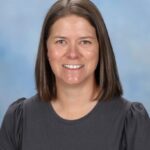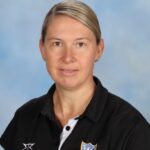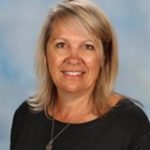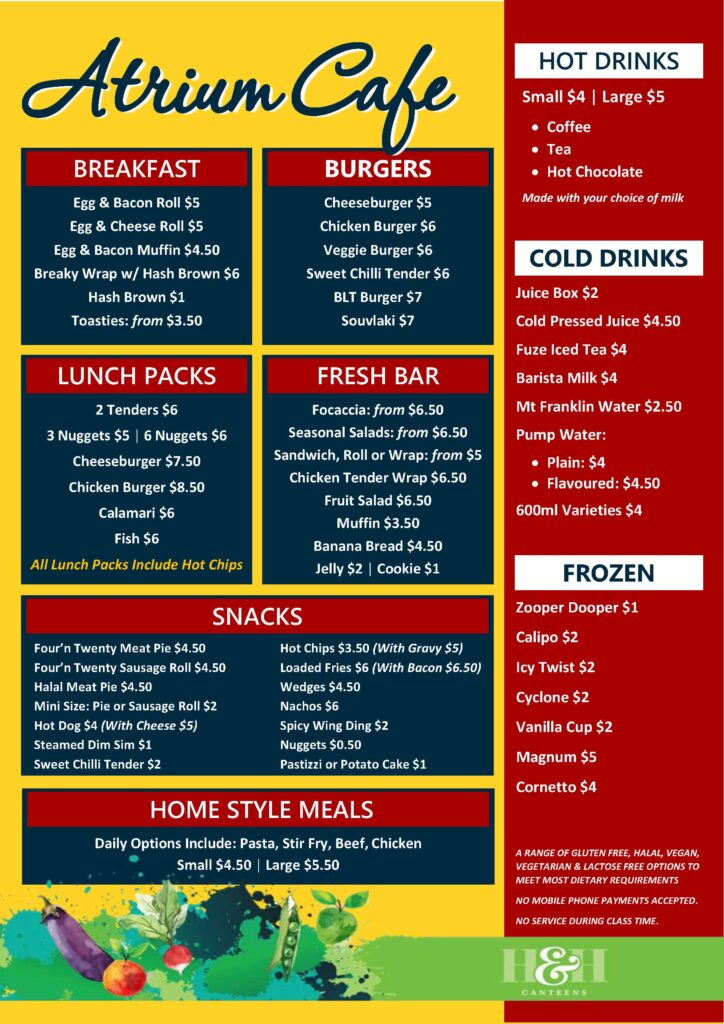2024 Year 7 Transition Hub
WERRIBEE SECONDARY COLLEGE | Live Worthily
We understand moving from primary to secondary school can be a big change. This hub is intended for families who have been offered a place at our College for 2024, to help make your transition a smooth process.
Below on this page you will find all of the information you need to get started at Werribee Secondary College.
Click the below events to see more details or to add them to your calendar:
Important Updates
FIRST DAY OF SCHOOL
School commences on 30th January 2024.
Arrive to the front gates from 8:30am ready for an 8:50am start.
Parents can attend a welcome morning tea in the Library after drop-off.
The school day ends at 3:04pm.
STATE SCHOOLS’ RELIEF APPLICATIONS
Applications are now open for families wishing to apply for the State Schools’ Relief Year 7 uniform support package for 2024. (Those who qualify for CSEF will also qualify for this package.) Further information and the application form can be found below.
PURCHASING UNIFORMS
WSC uniforms can now be purchased from the new Academy Uniforms store at 1/195 Old Geelong Road, Hoppers Crossing.
View New Store Flyer
2024 BOOKLISTS
2024 college booklists are now available to order online at JP BOOKS.
Ordering information is provided in the sidebar of the booklist.
Second-hand items can be purchased using the Sustainable School Shop.
FROM THE PRINCIPAL | Ms Amanda Mullins
I wish to extend a huge welcome to our new Year 7 students and families. Werribee Secondary College has a proud history where all of our students are supported to be their best and ‘Live Worthily’.
At Werribee Secondary College we concentrate on developing the student as a whole. Adolescence is a time of change and challenge. We fully support the growth of our students socially, emotionally, physically and academically. We have support structures in place to ensure our students learn about themselves, are able to make good choices and perform their best in all their classes.
Throughout their time at the college, students are given choice about their future pathways and have many opportunities to join extra curricular activities to pursue their interests or develop leadership skills. Please take the time to read through all of the information on this page and browse our wider website to learn more about our school and the things available for you. I look forward to meeting you soon.

2024 Enrolments
Families who receive a 2024 year 7 placement at Werribee Secondary College received a welcome email containing online enrolment details.
Enrolment submissions were due by 18th August 2023.
Your place at the college is not confirmed until your enrolment is complete.
An expression of interest for SELP is provided within the form; late enrolments are ineligible to apply.
It is also important families return their child’s placement acceptance slip to their primary school.
If you have received a placement with us but not received your welcome email please contact us. If you have yet to apply for place with us, please visit the enrolments page of this website to start the application process.
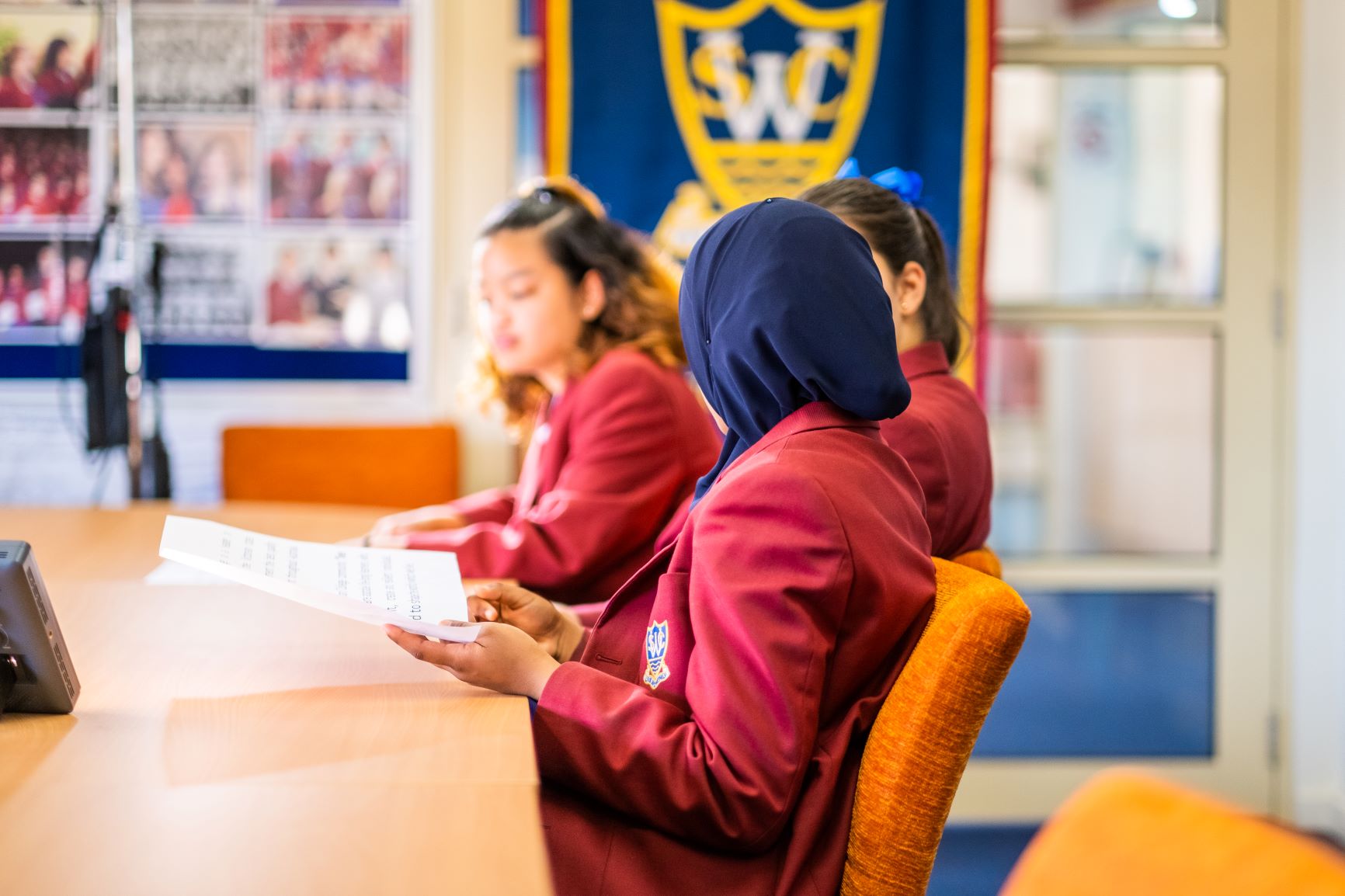
Parent Information Night
Meet The Junior School Team
These are your go-to contacts in the Junior School office.
The Junior School office can be contacted via the main school phone number and then following the prompts.
If your query is not urgent, the preferred method of contact is email.
(03) 9741 1822
werribee.sc@education.vic.gov.au
kristyan.daprano@education.vic.gov.au
Oversees enrolments as well as planning, programs and behavioral support.
Ms Hill oversees the transition process, as well as Junior School curriculum and communication.
As year level coordinator, Ms Hugo assists with with information, attendance, behaviour and support.
Your initial point of contact at the Junior School office. Ms Vincent assists with all administrative duties.
Located in the Junior office, Mr Lynch can assist year 7 students when Ms Hugo is not available.
At Werribee Secondary College we strive for success in all the chosen endeavours of our students. We nurture the values of respect and responsibility. We respect, and are responsible for embracing our identity and that of others; taking care of our local and global communities, and valuing the right to learn.
WERRIBEE SECONDARY COLLEGE MISSION
I respect my own right to learn and that of others, and I recognise my responsibility to become a lifelong learner.
I respect the diverse cultures, religions, languages, beliefs, genders, sexual orientation and the specific needs of those around me. I respect my own role within this community and take responsibility to show respect for both myself and others.
I respect the local and global communities within which I live. I understand my responsibility in protecting these communities to ensure a safe and sustainable future in which everyone feels they belong.
Important Information
UNIFORM PURCHASING AND POLICY
All Werribee Secondary College uniforms are sold by Academy Uniforms.
- Purchase uniform items online or by visiting the Academy Uniforms store.
- Free delivery is available for online orders.
- Pricing available to view on the order page.
Visit: academyuniforms.com.au
The Academy Uniforms store is located at:
1/195 Old Geelong Road
Hoppers Crossing VIC 3029
Email: info@academyuniforms.com.au
Opening Hours: Tues -Fri: 9am – 5pm, Sat: 10am – 1pm
View New Hoppers Crossing Store Flyer
Exclusive fitting dates are offered for WSC year 7 families on 4th, 5th & 6th December 2023, 3:00pm to 8:00pm – Bookings Required
CLICK HERE TO BOOK ONLINE
VIEW THE FULL COLLEGE UNIFORM POLICY
Please view further summarised/printable uniform information below.
Second hand uniform: Werribee Secondary College provides all families free access to use the Sustainable School Shop platform to buy or sell secondhand items.
2024 BOOKLIST INFORMATION
2024 Booklists are now available online from JP Books.
***Please wait until your child’s 2024 LOTE allocation has been confirmed by the school before placing your order***
Online orders can be placed for home delivery, school or store collection, depending on the date of your order.
Full ordering information and dates are provided in the sidebar of the relevant book list.
For any further assistance with books or orders please phone JP Books directly on 9314 0529.
All students also require a locker lock.
The recommended model lock can be purchased anytime during college opening hours for $17.00 at the front office.
Werribee Secondary College also provides all families free access to use the Sustainable School Shop platform to buy and sell second-hand items.
2024 booklists have been loaded on the Sustainable School Shop platform.
The listing site is most popular in late December/early January, after the current school year ends.
For any assistance with Sustainable School Shop please contact them directly on 0438 743 444 between the hours of 8am to 5pm, Monday to Friday.
BYODD (DEVICES) PURCHASING, POLICY AND ACCEPTABLE USE
Students of Werribee Secondary College require their own approved device that meets the requirements of the BYODD Program.
- The only devices supported or recommended by the college are a Macbook, iPad, or Windows device as specified on page 3 of the BYODD Program.
- Our suggested supplier is The School Locker who offer a school purchasing portal and easy warranty support.
We have also provided documentation below to assist you in the initial set up and on-going management and use of your device. It is recommended to obtain personal property insurance for items in case of loss or damage. For any further assistance please contact our IT Department via email: ITS@staff.werribeesc.vic.edu.au
Device Policy & Usage:
BYODD Program & Devices
BYODD Acceptable Use
Using Technologies Appropriately
ePlanner & MDM Clarification (App4)
E-safety guide
Essential apps for students
Device Configuration:
Set up a free Apple ID
Wifi (iPad) | Wifi (Macbook)
Printing (iPad) | Printing (Macbook)
Clickview
MS Office 365
Class Notebooks (OneNote)
IT Support For Students:
Students requiring IT support for their iPad, Macbook or other approved device are to log a request via the support center.
You can log in to the support centre with your school ID (once allocated).
The support center also allows you to view the status of your existing requests (tickets).
The IT office is located in ‘S’ Block (science area).
Internet Users Agreement:
All families are asked to read and agree to the Werribee Secondary College internet users agreement as part of the enrolment process. Students will only be provided with a password following acceptance of this agreement. An additional Acceptable Use Agreement applies to student devices.
BYODD Acceptable Use
In order to use the school network, students will need to confirm their acceptance of the Acceptable Use Policy on the first occasion that they attempt to connect by completing a student declaration that they:
a. Have read the conditions outlined in the BYODD Acceptable Use Policy (below) and the document called “Using Technologies Appropriately“
b. Have understood the significance of these conditions of use and agree to abide by them.
BYODD General Use
- I will bring the Device fully charged to school each day.
- I will keep the Device in its cover when transporting it around the school.
- Parents and students are responsible for the maintenance and repair of the Device.
- I will immediately report any accidents or breakages to my teachers.
Content
- The Device must ONLY connect to the Internet using the school wireless network.
- The Device must have the management software (MDM) in order to be able to access school approved and supplied apps, email and printing.
- I will not delete the MDM application from my Device.
- I will not bypass the school network by using a “personal hotspot” or VPN.
- Only the approved Device may be used to access the College Network.
- I will use the Device only to support my school learning program.
- I will use the Device only for school work and only when the teacher gives instructions for its use.
- The use of my Device will not distract others from learning.
- I will not use illegal / unsuitable software. I understand there will be consequences for inappropriate use.
- I will not use the Device for games unless approved by my teacher.
Safety and Security
- I will only go to websites which support my learning activities and as directed by my teacher.
- I will be cyber safe and cyber smart when using the internet.
- I will demonstrate appropriate etiquette (manners), when using my Device and other equipment with regard to other people.
- I will use the Device lawfully and in accordance with the Acceptable Use Policy regarding ethical use of equipment, technology, use of legal software, use of the internet and the protection of personal data.
- For security reasons, I am not to share account names and passwords with anyone unless requested by technicians when servicing the Device.
- I am responsible for the security and use of the Device. When not using my Device I will keep it locked in my locker.
- I will use only my allocated account and password.
- I understand that if the above conditions are not followed, I may not be granted the authorization to use the Device or other mobile devices at school.
Students who are found breaching any of these rules may have their internet and network access removed and receive further consequences.
For support with cyber bullying and being cyber smart, please visit www.esafety.gov.au
PARENT PAYMENTS AND FINANCIAL SUPPORT PROGRAMS (CSEF / STATE SCHOOLS RELIEF)
2024 Parent Payment Arrangements:
Schools provide students with free instruction to fulfill the standard Victorian curriculum and all contributions are voluntary. Nevertheless, the ongoing support of our families ensures that Werribee Secondary College can offer the best possible education and support for our students. You will be able to make payments via Compass once you receive your login. We appreciate any and all support.
2024 Parent payment information will be posted here once confirmed in late 2023.
Financial assistance is available for families via CSEF & The State Schools’ Relief program.
The Department of Education’s Camps, Sports and Excursions Fund (CSEF) provides payments for eligible students to attend activities including:
- school camps or trips
- swimming and school-organised sport programs
- outdoor education programs
- excursions and incursions.
The CSEF funding amount for Secondary School students is $225.00 (subject to change). It cannot be used towards books, stationery, before/after school care, music lessons, or formals/graduations.
VISIT THE CSEF WEBPAGE FOR MORE DETAILS & APPLICATION FORM
Year 7 students who receive CSEF funding may also be eligible to receive support for school uniforms via the State Schools’ Relief program:
2024 State Schools’ Relief application form and information
Please return your completed order form to werribee.sc@education.vic.gov.au
 Loading…
Loading…
 Loading…
Loading…
If your family is experiencing severe financial hardship making it difficult to obtain the necessary items to commence school, please contact our college Wellbeing department for further assistance.
WELLBEING & SETTLEMENT SUPPORT
Wellbeing:
At Werribee Secondary College, we recognise that our new Year 7 students transition to us best when they feel happy, healthy and safe. We promote the development of each child by placing emphasis on the holistic development of our students. Our college has created a caring environment where our students feel valued, supported and have access to professional and confidential wellbeing support when they need it.
The Wellbeing team is available to provide support to our new Year 7’s dealing with the day-to-day issues associated with life in Secondary School. With a presence in the Junior School, Wellbeing are easily accessible to all Year 7 students throughout the day. Wellbeing supports students and families by providing short to mid-term support and access to counselling, case management and group work. They also support the important work of the Junior School teams and curriculum leaders to deliver programs that promote resilience, positive relationships and general wellbeing.
Families and students can contact the Wellbeing team through Compass or via werribee.sc@education.vic.gov.au
Support for students with additional needs:
During Recess & Lunchtime the Wellbeing team runs a social skills support group which is held indoors, daily, opposite the junior school administration office. The purpose of the group is to assist our students who are considered to require social/ emotional support during periods of non-structured time in the school day. The long-term goal is that students should develop the tools to re-integrate back into the main school yard. The social skills support group offers our junior students an informal setting while discreetly working to develop students’ ability to show resilience in the school yard. This is achieved through providing students the opportunity to participate in computer games, board games, role plays, arts/crafts, etc.
Extra transition support can also be offered for students experiencing anxiety or distress about the move to secondary school. Please speak with the Junior or Wellbeing teams upon enrolling with us if you require this support.
Financial hardship support:
Werribee Secondary College is committed to supporting families and students who are facing financial hardship. If you are experiencing financial hardship due to the impact of COVID-19, or for any reason we have a range of services that include support for:
- School resources: books, laptops/internet access, uniform
- Basic needs: food, clothing, emergency accommodation
- MYKI cards
Please feel welcome to contact the Wellbeing team to discuss your needs.
Settlement Services:
Werribee Secondary College has a working relationship with the Wyndham Community & Education Centre Inc. WCEC is funded by the Department of Social Services to provide settlement services to permanent residents who have arrived in Australia in the last five years as humanitarian entrants or family stream migrants with low English proficiency. Services are designed to enable clients to become self-reliant and participate equitably in Australian society as soon as possible. They also assist eligible communities that need assistance and support to develop capacity to meet the needs of their members.
- Drop-in at the college office between 9:00am to 12:30pm on a Tuesday during school terms to meet with a settlement services worker.
- You can also contact WCEC worker Say Htoo Eh (female) directly at: sayhtoom@wyndhamcec.org.au | Ph: 0466 354 878
Casework and Settlement: These services include the provision of settlement related information, advice, advocacy and referral services to individuals and families during their early settlement in Australia. They also provide information on Working in Australia, making employment referrals and working with employers and employment agencies to create employment opportunities for new arrivals:
- Accessing English language services
- Employment information
- Housing, legal & consumer issues
- Health & well-being
- Family relationships
- Income support
- Access to government and non-government services
- Referrals to specialist services
Community Coordination and Development: Community Coordination and Development actively works on achieving positive outcomes in regards to key settlement issues for refugees & new and emerging communities through educational, social, recreational and information programmes. They provide assistance to newly arrived clients to make social connections and enhance their economic and personal wellbeing:
- Volunteering Programmes
- Support Groups
- Sport and Recreation Programmes
- Social Enterprise initiatives
- Festivals and Events to celebrate cultural diversity and encourage community participation
- Mentoring of community organisations to develop capacity and sustainability
- Family Strengthening Activities
- Opportunities for social engagement and to practice English skills
- Cultural awareness training for service providers and agencies
Settlement Youth Services: Wyndham CEC’s Settlements Youth Services aim to provide support, mentoring and advocacy for eligible young people, to engage and develop their leadership skills and to assist them to settle and actively participate in Australian society. Wyndham CEC engages young people through youth specific workshops, camps and sporting activities and supports young people to become involved in mainstream activities and to be active members of the WHN’s Youth Working Group:
- Casework
- Referrals
- Sport and Recreation Programmes and events
- Group Information Sessions or Workshops
- Building capabilities in employment, education, training and social skills
- Targeted Youth Programmes
- Advocacy and Networking
- Leadership Programs
- Support groups for disconnected youth
COMPASS
Compass is the college’s information and communication platform.
All parents and students will receive a Compass login prior to commencement.
All students and parents will have access to Compass information including the student’s:
- Personal Timetable
- Lesson Bell Times
- Attendance (rolls are marked every lesson, six per day)
- School Reports (Interim and End of Unit)
- Homework
- Learning Tasks for each subject
- Progressive Results
Compass means all relevant information can be found in one location.
Parents are able to monitor their child’s progress and make contact with their child’s teachers if they have a concern.
Compass also contains a Newsfeed where you will receive important communications from the college, please check it daily.
VIEW THE COMPASS PARENT USER GUIDE
We suggest using the web browser version of Compass as some features in the app version are limited.
Bookmark the below login page:
 Loading…
Loading…
A handy guide for students and parents outlining key expectations at the college and ‘what to do’ in many common situations.
 Loading…
Loading…
A handy guide for students and parents outlining college uniform expectations and purchasing information.
 Loading…
Loading…
A printable summary of the college 2024 term dates, Victorian public holidays, college bell times and a college map.
Operated by H&H, the Atrium Cafe (canteen) at WSC provides fresh hot and cold meals daily, along with seasonal specials. Catering to a wide range of dietary requirements, it carries many brands our students know and trust, supporting healthy, balanced eating.
We encourage families to use the online QuickCliq system to pre-order lunches, pay online, and skip the counter queues! The Atrium Cafe also accepts cash or card payments for purchases made over the counter.
The Atrium Cafe will be closed on Transition Day (12th December 2023). The college will provide a free BBQ lunch on this day (all dietary requirements accommodated).
Year 7 Curriculum
All students undertake a learning program based on the Victorian Curriculum and participate in a daily homegroup session. This program has been well established at year 7 to assist with the transition from primary school. Students study all eight key learning areas: English, Mathematics, Science, Humanities, Health & Physical Education, Technology, Arts and Languages (LOTE). Morning homegroup sessions encompass many aspects of student wellbeing, establish connection with a peer group and dedicated teacher, and encourage participation in short topical activities.
Students who obtain places in year 7 SELP have all classes together, undertaking accelerated Mathematics, Science and Humanities, extension in English, Music, Arts and Technology, and personal goals in Health and Physical Education, as well as their chosen language. Further details are provided on the SELP page.
OUTLINE, ASSESSMENT, REPORTING AND MONITORING
Unit outlines provide information to parents and students about what will be taught in each unit of work, specific work requirements must be completed and what assessment tasks will be used to determine an overall grade for the unit.
Differentiation: The Curriculum program requires teachers to prepare differentiated work in subjects. This is done to provide suitable curriculum for students to ensure that the curriculum is challenging but accessible for all students.
Assessment and Reporting
It is very important to us that parents (and students) are made fully aware of our expectations and that you are regularly informed about your child’s progress. Teachers at Werribee Secondary College use a range of assessment strategies that provide opportunities for all students to demonstrate their understanding of the material being studied.
In addition to posting scores online, the progress made by students is reported to parents in a number of ways:
- Progress Reports: Progress reports are generated in the middle, and at the end, of each term. These are available online. These reports provide an indication of the level of student performance in a range of areas including academic results, organisation, participation, homework and behaviour.
- Parent-Teacher Interviews: All parents are encouraged to attend Parent-Teacher Interviews which immediately follow the issuing of Interim Reports at the end of terms 1 and 3. These interviews enable parents, students and the teacher to discuss any issues which may be affecting the student’s academic progress or their social development. Interviews are booked online.
- End of Semester Reports: All students are issued with formal written assessments of their performance in each subject at the end of each semester. These are accessible online via COMPASS.
On-going Monitoring of Performance
The College provides all students and parents in Years 7 to 12 with access to student scores via COMPASS. These scores are available for all subjects from the start of the year. Student grades are treated confidentially. Courses of study and important assessment tasks are also available online.
Compass allows staff to inform parents of non-submission of work items. Parents can also see assessment items set by staff and, in real time, the marks achieved for those items. It is important that all parents and students to be aware that the College does not have automatic progression from one year level to another. Students need to demonstrate a satisfactory level of achievement and high levels of attendance in order to be promoted. Parents may download a copy of our ‘Student Promotion Policy’ from our website.
Parents should closely monitor their child’s progress online. You are encouraged to contact the relevant subject teacher, Year Level Coordinator or Sub-School Director if there are any concerns.
ENGLISH
Year 7 English
Year 7 English provides students with a broad range of learning skills that build independence, learning confidence and a positive attitude. A solid academic foundation is established with a focus on core literacy skills in the area of reading, writing, listening and speaking. Students engage in a variety of texts and begin to create literary analyses and transformations of texts for different contexts, purposes and audiences. Particular focus is placed on correct usage of punctuation, grammar, sentence structure, proof reading and editing. This program aims to assist with the smooth transition from Primary School.
The use and maintenance of an English workbook and folder on an everyday basis is designed to develop students’ organisational skills as well as a sense of responsibility for their own progress. Through the acquisition and use of the library, students will develop research, analysis and synthesis skills. They will be required to use these skills for the presentation of specific projects. Additionally, students will participate in the Premiers’ Reading Challenge, which will also be supported by the well-resourced library, to cater for the interests and needs of all students in the development of appropriate reading strategies, reading fluency and the enjoyment of literacy experiences.
Students’ listening skills are encouraged as an important social skill, in order to effectively follow directions and instructions. Oral language skill development is encouraged through individual and group presentations of assignments and literature responses.
Semester 1 & 2 Outcome Guide:
Each of the outcomes below will be graded and with other pieces of work used to determine the overall grade for Year 7 English.
- Reading and Viewing
- Writing
- Listening and Speaking
This will encompass the following:
- Reading and Responding
Students will engage in a variety of text types and are required to respond via oral presentations, projects, assignments and book reports. They are required to select specific details from texts to develop their own response, recognising that texts reflect different viewpoints.
- Writing
Students will produce a variety of structured texts for a range of purposes and audiences. When creating texts, they select language features, text structures, and images from different texts to combine for effect and to influence an audience. When editing texts, students will focus on the accuracy and fluency of written expression: grammar, vocabulary and spelling and punctuation.
- Listening and Speaking
Students will contribute to class and groups discussions. They will produce and present structured texts that combine language features and images for a range purposes and audiences to engage the audience.
MATHEMATICS
At Werribee Secondary College, our students are encouraged to persevere and take risks through the study of Mathematics. They aspire to learn independently, work collaboratively and through the use of logical reasoning become problem-solvers in their future endeavours and communities.
The courses aim to ensure that students are confident, creative mathematicians who are able to investigate and communicate their findings. The focus is the development of students’ skills of understanding, fluency, problem-solving and reasoning. The courses will look at mathematical literacy, numeracy, purposeful use of technology as well as critical and creative thinking.
The topics covered in mainstream classes are as follow:
Semester 1
- Whole Numbers and Negative Numbers
- Factors, Multiples, Primes and Divisibility
- Measurement
- Summarising Data & Statistical Investigation
- Fractions
- Decimals and Percentages
Semester 2
- Pattern Spotting and Simplifying
- Angles
- Probability
- Solving Equations
- Ratios and Rates
The topics covered in SELP Accelerated group are as follows:
Semester 1
- Integers & Fractions & Decimals
- Angles and Shapes
- Simplifying
- Perimeter, Area and Time
- Summarising Data & Statistical Investigation
- Factors and Indices
Semester 2
- Brackets
- Solving Equations
- Pythagoras Theorem
- Percentages
- Graphing
- Probability
- Ratios and Rates
Homework and Class Tasks
Tasks are expected to be completed in class or at home on a regular basis.
Assessed Topic Tasks (AT1, AT2, AT3)
Students’ acquired knowledge are assessed regularly through assessment tasks. The assessments are divided into three levels of the curriculum for mainstream groups and two levels of the curriculum for the SELP groups.
Examination or Semester Test
Designed to assess students’ acquired knowledge under timed conditions.
For Mainstream / SELP groups
| Task | Weighting (calculation of the OVERALL SEMESTER RESULT) |
| AT1 Number & Algebra | 20 |
| AT2 Measurement & Geometry | 20 |
| AT3 Statistics & Probability | 20 |
| AT4 Homework & Class Tasks | 20 |
| AT5 Semester test / Examination | 20 |
SCIENCE
In Year 7, students work towards developing knowledge and understanding in several key areas. They are introduced to laboratory equipment, how to work safely in a laboratory and the principles of science experimentation. They study the particle model as a basis for understanding chemical reactions, and determine the differences between physical and chemical change. They explore the diversity of life on Earth and continue to develop their understanding of the role of classification in ordering and organising information. Students will build on their understanding of the particle model to understand the nature of mixtures, and how separation of components may be achieved. They will investigate forces and simple machines. They investigate relationships in the Earth, sun, moon system and use models to predict and explain events.
In all areas of study, students make accurate measurements and control variables to analyse relationships between system components and explore and explain these relationships through increasingly complex representations.
Students will be assessed in all key knowledge and skill areas through the completion of classroom, laboratory, assignment, and homework tasks:
Assessment Tasks
Students will be assessed throughout, and at the conclusion of, each unit studied during the course of the year:
Practical Work
Experimentation provides students with the opportunity to develop and hone their scientific and report writing skills.
Students will be assessed on their ability to make appropriate observations, keep accurate records, draw conclusions and write reports in the appropriate format.
Assignments
Students will complete both individual and group assignments that are STEM focussed and explore Science as Human Endeavour.
Coursework
Students will complete text work, worksheets and quizzes which help them to apply knowledge which they learn in class.
Topic Tests
Testing provides students and teachers with a gauge of the efficacy of aspects of the learning program.
Working knowledge of each topic will be assessed for each area of study.
LOTE
*Please note that LOTE options are subject to change based on preference numbers and teaching staff availability.
Indicate your LOTE preferences in your enrolment form, but please understand that preferences are not guaranteed – The college will advise you of your child’s LOTE placement outcome.
JAPANESE
The topics covered in this unit will constantly exercise the students’ oral skills. It is important to note that in learning the Japanese language, students will have to also become familiar with and learn the relevant script of Hiragana. Great emphasis will be placed on mastering the script and will be used in classroom activities. Students will have to learn and know this script if they are to continue with Japanese in the future. WSC has a Japanese sister school, Mihara High School. Students have opportunities to converse in Japanese with them, as well as learn Japanese culture.
Learning Outcomes
On completion of this unit the student should be able to demonstrate competency in the four key skill areas for Japanese: Reading, Writing, Listening and Speaking.
Assessment Tasks
Assessment tasks are set throughout the semester as well as end of semester and will address the four key skill areas listed above.
SPANISH
The study of Spanish at Year 7 will allow students to discover the many similarities between Spanish and English as well as be immersed in the many different cultures associated with the one language (including Indian cultures such as the Aztecs of Mexico and the INCA Indians of Peru). The course is designed to develop communicative competence in the language via role plays and recitals and to develop students’ listening, reading and writing skills in authentic contexts.
Learning Outcomes:
Students are expected to satisfactorily complete all of the following:
1. Listening Activity | 2. Oral Presentation | 3. Reading Activity | 4. Writing
CHINESE
The study of Chinese Mandarin at Year 7 will challenge the student to develop their communicative skills. In learning Mandarin students will become familiar with Chinese characters as well as develop their speaking, listening, reading and writing skills. WSC has a Chinese sister school in Xi’an China and many other connections with Chinese schools. WSC also has an international program and many of these students come from China. Students have opportunities to converse in Chinese with them, as well as learn Chinese culture from them.
Learning Outcomes:
Students are expected to demonstrate competency in the following skills:
1. Reading | 2. Writing | 3. Listening | 4. Speaking
Assessment Tasks:
Levels of student performance are assessed on a variety of tasks, each making up a certain percentage of an overall grade.
FOOD TECHNOLOGY
The Food Technology Unit in Year 7 is designed as an introduction to the preparing and cooking food in a safe and hygienic manner. To produce healthy recipes and develop and knowledge on food choices for healthy living.
Students will explore the key food groups, with an emphasis on healthy eating, cooking techniques, skills, safety and food hygiene in the kitchen. This will form the focus for practical activities and food or product analysis where they produce a recipe or analyse food from range of different food items suitable for breakfast, lunch and dinner and a range of healthy snacks.
Students develop their self-confidence and management skills, to carry out the technology processes of investigating and designing, producing and analysing and evaluating recipes.
Topics covered in the program include:
- Safety and Hygiene in Kitchen
- Introduction to the Kitchen
- Recipe Basics and Equipment
- Sensory Properties of Food
- The Design Process
- Seasonal Foods
- Eating Well to Be Well
- Right Choices for Me
Assessment Tasks:
- Workbook activities
- Practical Skills – recipe production and written evaluations
- Assignment tasks
HEALTH AND HUMAN RELATIONS
In this unit, students explore a range of introductory topics emphasising the importance of health and wellbeing as they explore the complex interplay of biological, sociocultural and environmental factors. Students gain an understanding of themselves including personal identity and values, as well as embracing diversity within their community and the importance of their and others safety and wellbeing.
Topics covered include:
- Relating skills
- Diversity
- Cyber Sense
- Changing and growing
- Body image and self-esteem
Learning Outcomes:
1. Being healthy, safe and active
2. Communicating and interacting for health and wellbeing
3. Contributing to healthy and active communities
Assessment Tasks:
1. Coursework
Students are expected to complete workbook and other formative tasks. The quality of work, amount of completed work and the overall presentation will be assessed.
2. Common Assessment Tasks
Students are expected to complete Common Assessment Tasks which are a summative assessment of the units that are covered. These are consistent across the whole of the Year 7 cohort.
PHYSICAL EDUCATION
The emphasis in these Year 7 units is upon participation in a range of fitness and sporting activities. A number of different areas are covered, enabling students to experience success at some level.
The general aims of Physical Education program are to:
(a) develop a healthy attitude to physical education and physical activity
(b) introduce students to a range of skills and activities
(c) develop co-operation and confidence in group work
(d) improve student approaches to a healthy lifestyle
UNIT ONE
The practical topics in this unit will be selected from:
- Minor Games
- Fundamental Motor Skill Testing
- Racquet Sports
- Fitness Games/Testing
- Volleyball
UNIT TWO
The practical topics in this unit will be selected from:
- Invasion Games (Netball, Soccer, Football, Tchoukball, Korfball, European Handball, Speedball, Hockey, Soft Lacrosse)
- Striking Sports (Softball, Teeball, Cricket)
Assessment Tasks:
1. Moving The Body
Students are assessed on their level of co-operation, effort and participation to the best of their ability.
2. Learning Through Movement
Students are assessed on their ability to demonstrate appropriate skill level in practice and in game situations. They are also assessed on making reasonable attempts to learn new skills and develop existing skills.
3. Understanding Movement
Students are assessed on their ability to take on leadership roles such as umpiring and team leading as well as their teamwork skills and participation with students and teachers in a cooperative manner.
VISUAL ARTS
The Junior School Arts Program involves Year 7 and Year 8 students studying a series of units over two years in the following areas:
- Two and Three Dimensional Art
- Ceramics
- Digital and Mixed Media Arts
- Visual Communication and Design
- Printmaking and Photography
Students create visual art works that communicate, challenge and express their own and others’ ideas. They develop perceptual and conceptual understanding, critical reasoning and practical skills through exploring and expanding their understanding of their world. They learn about the role of the artist, craftsperson and designer and their contribution to society, and the significance of the creative industries. Students learn about the relationships between the viewer and artworks and how artworks can be displayed to enhance meaning for the viewer.
Visual Arts engages students in a journey of discovery, experimentation and problem-solving relevant to visual perception and visual language, utilising visual techniques, technologies, practices and processes. Visual Arts supports students to view the world through various lenses and contexts. They recognise the significance of visual arts histories, theories and practices, exploring and responding to artists, craftspeople and designers and their artworks. They apply visual arts knowledge in order to make critical judgments about their own work and that of others. Learning in the Visual Arts helps students to develop understanding of world cultures and their responsibilities as global citizens.
Learning Strands:
- Explore and Express ideas: Exploring, imagining, experimenting and expressing ideas, concepts, themes, values, beliefs, observations and experiences in artworks that students view and make.
- Visual Arts Practices: Developing understanding and skills by exploring, selecting, applying and manipulating techniques, technologies and processes. Conceptualizing, planning and designing artworks.
- Present and Perform: Creating, exhibiting, discussing, analyzing artworks and considering the intention of artists and curators. Considering the relationship between artist intentions and audience engagement and interpretation.
- Respond and Interpret: Analysing, evaluating interpreting and reflecting upon meanings, beliefs and values in artworks. Examining artworks in historical and cultural contexts.
MUSIC
The emphasis in the music program is on developing an understanding of music. Students will develop skills in performance, composition, listening, music theory and gain an understanding of the development of musical styles throughout history. They will learn to sing, play the keyboard and recorder in Year 7 Mainstream. SELP students will learn woodwind / brass or strings as well as singing and keyboard work. Students are also expected to write reviews and complete assignment work on given topics. A major focus in the Year 7 program is on fostering confidence and enjoyment through a wide range of musical activities.
Learning Outcomes:
- Performance
Students are expected to perform pieces as soloists and as part of an ensemble. - Workbook
Students are expected to keep an accurate record of class notes, activities and homework. - Aural Work
Listening to music and participation in class discussions about musical styles and instruments as well as aural perception. - Composition
Pieces are composed to a given set of guidelines.
Assessment Tasks:
- Performance
Students will be assessed on the quality of solo and ensemble performances will be assessed - Workbook
Students will be assessed on the presentation of their workbook and the quality of completed work. - Aural Work
Students will be assessed on the completion of aural work done in class. They will also be required to research and present assignments on given music styles and instruments. - Composition
Students will be assessed on the quality of their completed composition.
DESIGN AND TECHNOLOGIES
Engineering Principles and Systems:
The Design and Technologies unit introduces students to Design and Technologies using Engineering principles and systems. Students will be provided with the opportunity to begin the tasks of designing, creating and evaluating processes, products and engineering systems using a range of materials and equipment. The aim is to promote innovation, collaboration and promote design skills and creative thinking with an awareness of sustainability.
Topics covered in the program include:
- Research for Designs
- Workshop Safety
- Tools and Equipment
- Sketching and Technical Drawing Skills
- Ethics and Sustainability Considerations.
- An Introduction to Mechanical and Electronic Systems
- The Design and Production Process
- Working with Plastics
- Cutting
- Drilling
- Sanding
- Joining
- Evaluating Systems and Processes
As well as underdoing theoretical tasks, students will be asked to demonstrate their understanding by Designing, Producing and Evaluating a small Electro-Mechanical System.
Learning outcomes:
- Technologies and Society.
- Engineering principles and systems.
- Creating Designed Solutions
Private instrumental music lessons are a co-curricular option where students can receive specialised tuition in small groups. Instrumental students also take part in band and ensemble practices and perform at concerts. The below annual fees apply for this optional program:
$390: Violin, Viola, Flute, Clarinet, Saxophone, Trombone, Trumpet.
$990: Piano, Drums/Percussion, Vocal Lessons.
$490: Acoustic Guitar (must own an acoustic guitar).
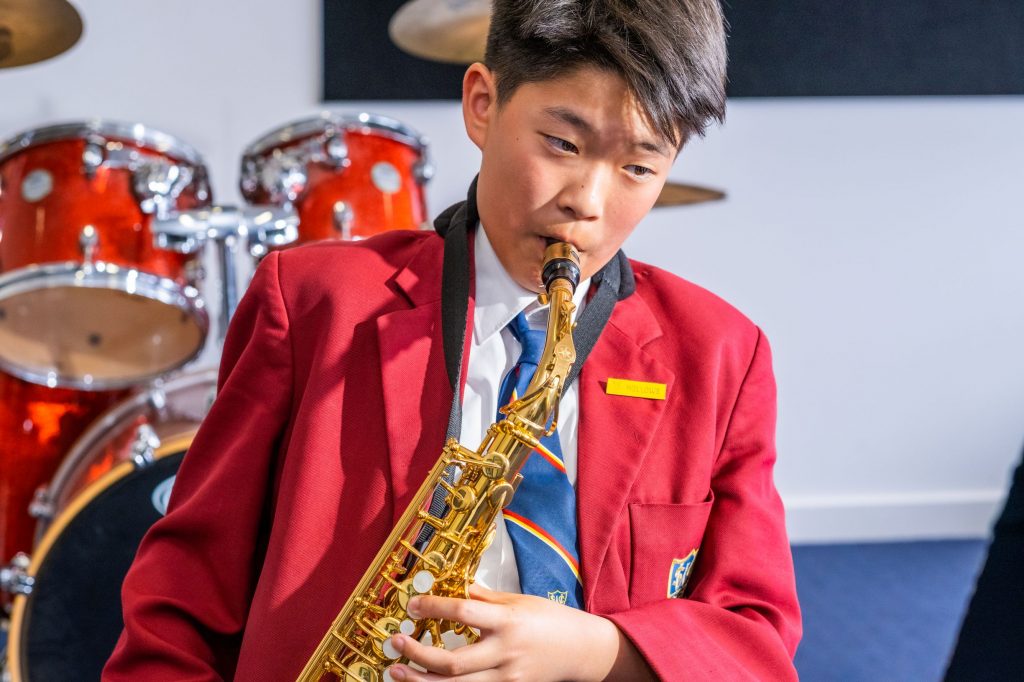
Frequently Asked Questions
How Are Year 7 Class Groups Formed?
Data from Primary Schools regarding all year 6 students is transferred electronically to our college.
Students will be allocated to classes, with regard to the data provided and the advice of primary school teachers and parents. Year 6 teachers’ recommendations concerning class groups is included within this data. Please note that organisational /timetable constraints may not enable all requests to be satisfied in relation to LOTE selection.
Parents are welcome to discuss any concerns in this area with our Year 7 Coordinator.
Who Do I Contact About My Child?
The best person to speak to is your child’s Year Level Coordinator.
Year Level Coordinators are trained to assist with most situations or will refer the matter on if required. They are the best point of contact as they have regular interaction with the students and teachers of that year level and are able to provide the most relevant assistance and information. They can help put a plan in place and follow it through. They are also your point of contact for behavior and attendance queries.
You can contact all Coordinators via our main office on 9741 1822 or by email. A list of Year level coordinators and their details can be found on the ‘Our College‘ page of this website or on Compass.
How Can I Stay Updated About News & Events?
COMPASS NEWSFEED & CALENDAR
Your Compass newsfeed is where we will always keep you updated about news, changes or upcoming events. Please make sure you check it regularly.
NEWSLETTER
We release a College Newsletter twice a term, a copy of which can be found on your Compass newsfeed when released and on this website (newsletter icon in the header).
FACEBOOK
Like or follow our official college Facebook page which is regularly updated with news, events and student work.
What Clubs Or Activities Are Available At The College?
There are many fun, social activities available outside of the classroom. Joining a club or extra-curricular activity is a great way for students to develop skills and meet new friends with similar interests.
A week called ‘Clubs Connect’ is held early in the school year, where students will learn more about the annual clubs and activities available.
Some of our clubs and programs include:
Leadership Committees
Army Cadet Unit (Year 8+)
Instrumental Music
Drama Club
Various Interschool and House Sports
Breakfast Club
Debating Club
We also offer The Duke of Edinburgh’s Award program.
Learn more about the above on our Curriculum & Programs page.
Other informal clubs may include (subject to change):
Chess Club
Terrific Textiles
Creatives (Art) Club
Gaming Club
Girls Self Defence Club
Library Lunchtime Reading Clubs
Maths Homework Club
Enviro Club
Wellbeing lunchtime, before school and after school activities.
These clubs are shown on our Community page.
Please note that as these clubs are arranged by individual students or teachers they may change year to year.
Other competitions and student activity opportunities will be communicated via Compass throughout the year.
How Can Parents Get Involved In The School?
Our Parents and Friends Association and College Council are important bodies in the decision-making and development of our College.
Election is required to join the council, but applications to join the Parents & Friends are always welcome. These means of direct involvement are wonderful in achieving not only a shared understanding but also a sense of shared purpose. Come along to a P&F event or meeting if you wish to get involved. You can apply for P&F membership via the Community page of this website.
There are also many other important ways to support your child. A less direct but appreciated means for parental involvement is by being supportive as well as a strong advocate of College rules and policies regarding student conduct. As parents appreciate, rules and policies exist with reason and aim at treating all members of our community fairly, reasonably and responsibly. Your willingness to discuss any problems which may arise concerning your child with the appropriate member(s) of staff ensures effective communication and best outcomes for all concerned. Shared understanding leads to educational success.
Can I Tour The School?
Tours of Werribee Secondary College operate throughout the year as listed on the tour page of this website. Tours must be booked online in advance. Tours are hosted by a Principal and run for about 45 minutes to an hour.
New parents will also be invited to a morning tea, hosted by our Parents and Friends Committee, early on in the new school year. We encourage you to come along to this event to view some of the school and to meet other members of our community.
What Are The School Bus Routes?
The bus services for Werribee Secondary College are operated by CDC Victoria.
Please visit the Parent & Student Information page of this website to view route information.
Please contact CDC Werribee for further assistance with buses including locating your nearest bus stop and times: (03) 9977 9911.
All bus routes are subject to change or delay due to road works or other activity. Notification will be provided via Compass where possible.
Do You Offer School Photos & Student ID Cards?
School photos are generally taken during term 1 (around March). The exact date/s will be confirmed via Compass closer to the time. There is usually a main photo day and a catch-up day for anyone who misses the main day.
School photos can be ordered and paid for via Compass. These orders are placed directly with the photographers (MSP). The prints are generally supplied within about two months following photo day. All class photos are a composite of individual portraits.
Photos can continue to be ordered from the photographer after photo day, however, this may attract a late processing fee. We suggest ordering prior to the photo day date to avoid this.
All WSC students present will be photographed on photo day/s regardless of whether or not an order is placed. This is for school identification purposes.
School photos are also used to produce student ID Cards which every student requires (they are used for library borrowing and printing). Parents do not need to pre-order these cards, they are supplied automatically by the school. If a student loses or damages their card, they must speak with their sub-school office promptly to arrange a new one.
Don’t forget these important dates.
Click on each to learn more or to add them to your digital calendar.
PLEASE DIRECT ANY FURTHER ENQUIRIES TO:
werribee.sc@education.vic.gov.au
“You may think that year 7 is going to be a big change and that it will be something that will be hard to get used to, but it’s not. You get used to the changing classes within the first 2-3 weeks. There is nothing to be scared of. You will have some of your friends that you have now, and you will make new friends. “
SOPHIE WITTHAUS | YEAR 7, 2022
Students Currently Enrolled At Werribee Secondary College
2022 Year 12 Students Successfully Graduated With Tertiary Offers.



